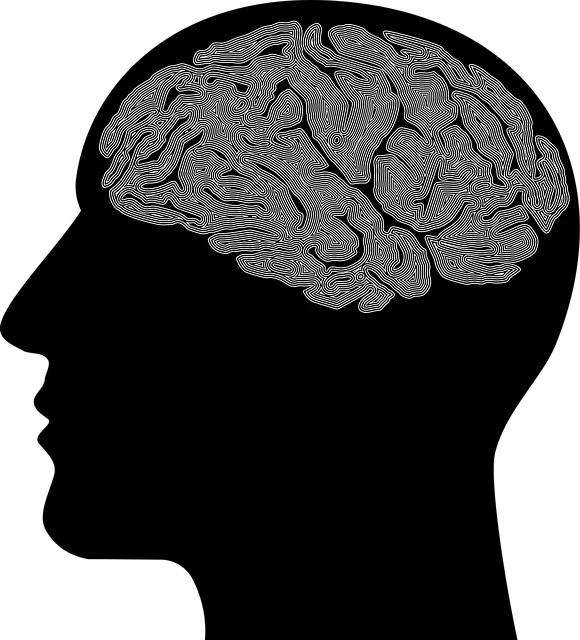The Kaiser Permanente mental health center in Arvada employs a comprehensive, holistic risk assessment approach prioritizing patient well-being. They evaluate historical trauma, substance abuse, and suicide attempts, among other factors, to develop personalized interventions. This strategy extends to educational programs teaching emotional regulation, creating supportive environments, advocating for accessible mental health policies, and fostering staff self-awareness through regular training. By integrating Trauma Support Services, Self-Care Practices, and Communication Strategies, Kaiser Permanente Arvada establishes a secure atmosphere that enhances patient outcomes and the well-being of its professionals, solidifying its reputation as a leading provider in mental healthcare.
Mental health professionals constantly face complex challenges, demanding a robust risk assessment framework. This article explores this critical aspect of care, focusing on strategies employed by leading institutions like the Kaiser Permanente Mental Health Center in Arvada. We’ll delve into understanding risk assessment, identifying potential threats, effective management techniques, and the significance of continuous improvement for enhanced patient safety. By examining these key components, we aim to provide valuable insights tailored to mental health professionals at the Kaiser Permanente center and similar facilities.
- Understanding Risk Assessment in Mental Health Care
- The Role of Kaiser Permanente Mental Health Center, Arvada
- Identifying Risks and Potential Threats
- Strategies for Effective Risk Management
- Continuous Improvement and Professional Development
Understanding Risk Assessment in Mental Health Care

Risk assessment is a crucial aspect of mental health care, enabling professionals at the Kaiser Permanente mental health center Arvada to identify potential hazards and implement preventive measures. It involves a comprehensive evaluation of various factors that may impact a client’s well-being, including historical trauma, substance abuse, or previous suicide attempts. By understanding these risks, mental health experts can tailor interventions and treatment plans to address specific needs, ensuring the safety and effective care of their patients.
The process goes beyond simply identifying vulnerabilities; it involves designing Mental Health Education Programs that promote emotional regulation skills and fostering a supportive environment. Additionally, analyzing Mental Health Policy Analysis and Advocacy plays a critical role in addressing systemic risks and advocating for policies that support mental health service accessibility and quality. These strategies collectively contribute to a robust risk assessment framework, ultimately enhancing patient outcomes at the Kaiser Permanente mental health center Arvada.
The Role of Kaiser Permanente Mental Health Center, Arvada

The Kaiser Permanente Mental Health Center in Arvada plays a pivotal role in providing comprehensive care and fostering resilience within the community. As a leading healthcare provider, the center is dedicated to addressing a wide range of mental health concerns, offering specialized services tailored to individual needs. Their approach emphasizes not only treatment but also prevention strategies, such as burnout and depression prevention programs, aimed at promoting long-term well-being.
The facility’s expertise extends beyond clinical care, engaging in Mental Health Policy Analysis and Advocacy. This proactive stance ensures that the center remains at the forefront of industry developments, contributing to systemic improvements in mental healthcare accessibility and quality. Through these initiatives, Kaiser Permanente Arvada strives to create a supportive environment, cater to diverse populations, and ultimately reduce the impact of mental health challenges on individuals and communities.
Identifying Risks and Potential Threats

At a Kaiser Permanente mental health center in Arvada, identifying risks and potential threats is a multifaceted process that goes beyond mere security measures. It involves a comprehensive evaluation of various internal and external factors that could impact the well-being and effectiveness of both patients and professionals. This includes understanding the unique challenges faced by individuals seeking treatment for mental illness, as well as the broader societal issues like Mental Illness Stigma Reduction Efforts. By recognizing these risks, the center can implement tailored Communication Strategies to foster open dialogue, enhance trust, and improve outcomes.
Moreover, effective risk assessment at this facility takes into account the emotional and psychological toll of the work itself. Mood Management is a critical component, ensuring that staff are equipped with tools to navigate their own mental health while providing support to patients. Through regular training sessions, crisis intervention protocols, and supportive supervision, the Kaiser Permanente mental health center in Arvada aims to create a safe, nurturing environment where both professionals and patients can thrive, despite navigating complex emotional landscapes.
Strategies for Effective Risk Management

Mental health professionals at Kaiser Permanente mental health center Arvada understand that effective risk management is paramount for delivering quality care. They employ a multi-faceted approach, integrating Trauma Support Services, Self-Care Practices, and Communication Strategies to mitigate potential risks. By fostering open dialogue with patients, promoting self-awareness among staff, and utilizing evidence-based trauma support, the center creates a safe and supportive environment.
These strategies not only enhance patient outcomes but also ensure the well-being of mental health professionals. Regular training on communication techniques enables staff to navigate sensitive conversations effectively, while self-care initiatives encourage practitioners to prioritize their own mental health, thereby enhancing resilience and preventing burnout.
Continuous Improvement and Professional Development

At a Kaiser Permanente mental health center in Arvada, continuous improvement and professional development are at the heart of their services. The center encourages all staff to engage in ongoing learning opportunities that enhance their clinical skills and broaden their understanding of emerging best practices. This commitment is reflected in diverse programs designed to support mental health professionals’ emotional well-being promotion techniques and self-care practices.
Through regular training sessions, workshops, and mentorship programs, the Arvada mental health center fosters a culture where professionals can continually refine their approaches. These initiatives not only ensure high-quality patient care but also enable staff members to stay abreast of the latest research and innovations in mental health education programs design.
Mental health professionals must continually assess and manage risks to provide safe, effective care. The Kaiser Permanente Mental Health Center in Arvada plays a vital role in this process by offering resources and strategies for identifying and mitigating potential threats. Through continuous improvement and professional development, mental health practitioners can enhance their risk assessment skills, ensuring they are equipped to navigate the complexities of their work. By adopting these practices, we can foster a more secure environment for both healthcare providers and their patients at the Kaiser Permanente mental health center, Arvada.






